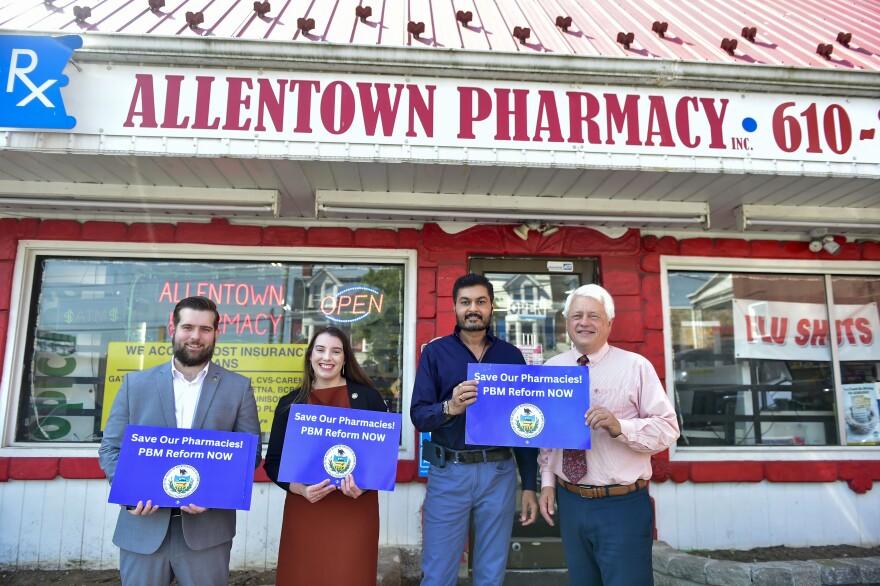ALLENTOWN, Pa. — Over 100 pharmacies across Pennsylvania have closed since the start of 2024.
Now, lawmakers are coming together to support a bill that would help keep local pharmacies open and lower prescription costs.
“PBM, or better known as pharmacy benefit managers, have some really unfortunate, you know, like unsavory practices that distort the market and are responsible for a lot of these pharmacies shutting down,” said State Representative Josh Siegel, D-Lehigh County.
Siegel joined State Representative Jessica Benham, D-Allegheny, in Allentown to tout House Bill 1993. The bill aims to bring reform to PBMs, which are separate companies hired by health plan distributors, large employers, unions and government entities to manage prescription drug benefits programs.
“We don't want to get rid of Pharmacy Benefits Managers entirely, but there are some ways that we can better regulate them in order to make sure that our pharmacies are able to make ends meet,” Benham said.
“When seniors are filling their prescriptions and they feel that cost, or when people complain about high drug prices, and they go to their pharmacist and they see that their drug has gotten more expensive, or they worry about how they're going to pay for a critical prescription, it's PBMs that are at the front and center."State Representative Josh Siegel, D-Lehigh County
The three largest PBMs in the country are Express Script, Optum RX and CVS Health which control 80% of the market.
“When seniors are filling their prescriptions and they feel that cost, or when people complain about high drug prices, and they go to their pharmacist and they see that their drug has gotten more expensive, or they worry about how they're going to pay for a critical prescription, it's PBMs that are at the front and center,” Siegel said.
Siegel and Benham met at Allentown Pharmacy Thursday to hear from local pharmacy owner Nick Patel.
“PBMs have been taking big cuts of reimbursements, hurting local pharmacies and raising prices,” Patel said. “This is especially a problem when the middlemen are taking money from government programs and not passing along the full cost. That’s why so many pharmacies are going out of business.”
The Allentown small business owner lost around $50,000 since the start of the year because of PBMs. Pennsylvania’s independent pharmacies have said they are struggling because of revenue decline, under-reimbursement, and financial strain.
“We wanted to draw attention to individual pharmacists, like Nick Patel, and the predicament that they're in and the discrepancies in reimbursement rates that they get from PBMs that are forcing them to take a loss.”State Representative Josh Siegel, D-Lehigh County
“We wanted to draw attention to individual pharmacists, like Nick Patel, and the predicament that they're in and the discrepancies in reimbursement rates that they get from PBMs that are forcing them to take a loss,” Siegel said.
House Bill 1993 would ban patient steering, spread pricing and retroactive recoupment of money paid by the PBM to the pharmacy.
“Spread pricing is when a PBM overcharges an insurance company and then underpays a pharmacy and pockets the difference,” Benham said.
She explained patient steering happens through practices such as letters encouraging patients to order prescriptions through the mail and preferential copays.
Siegel stressed the importance of protecting smaller, local pharmacies.
"These independent pharmacies are really respected and widely known neighborhood institutions where people have really good relationships," Siegel said. "There's a lot of deep trust. Our independent pharmacies have been at the forefront of immunization programs.
"They were a critical ally during COVID and making sure people felt safe and comfortable getting the vaccine because they had those long standing relationships.”
House Bill 1993 passed unanimously through the House Health Committee Wednesday and is poised to go to the House floor for a vote in the near future.


